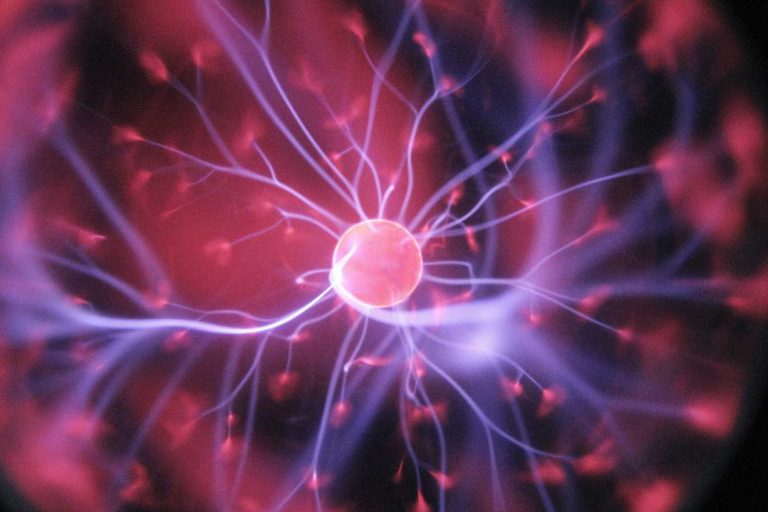Health Benefits of Nigella Seeds

TMQ: The "Active" Natural Compound
Thymoquinone, or TMQ, is the active natural chemical in Nigella seeds. Some studies are suggesting it can suppress certain breast cancer cell proliferation.

Antibacterial
Nigella seeds have natural, bacterial-fighting properties that offer protection against some strains of bacteria including staph as well as certain common and hospital strains of pathogenic bacteria.

Inflammation Relief
Black seed oil (nigella seeds) is also used to relieve inflammation and improve the body's overall immune system. Nigella seeds do not contain steroids and are known to also be effective at reducing both pain and swelling, symptoms seen in rheumatoid arthritis.

Blood Sugar Control
Diabetes is the mother of all health problems, some say. There have been studies done that show diets that include nigella sativa were able to reduce fasting blood sugar and the damaging effects of insulin resistance.
How is black seed oil beneficial?
Black seed extract, which is also known as Nigella sativa oil, kalonji oil, or black cumin seed oil, is often regarded as a universal remedy. It may help with bone, skin and hair health, sleep quality, the function of both your lymphatic and immune systems, your mood, and circulation. It is also believed to improve lung function, digestion, kidney and liver function, and to promote heart health. This it may do by not only aiding in disease prevention but by addressing the issue before it takes hold. It is thus both prophylactic and curative in nature.
Nutritional benefits of black seed oil
- 56% linoleic acid
- 24.6% oleic acid
- 12% palmitic acid
- 2.5% eicosadienoic acid (EPA)
- 3% stearic acid
- 0.7% linolenic acid
- 0.16% myristic acid
The Dietary Benefits of Black Cumin Seeds
Black seeds are a good source of calcium, potassium, iron, and sodium, as well as other vital minerals and amino acids [ref]. As a balanced diet is considered the cornerstone of a healthy lifestyle, black seeds or a black seed supplement as part of your diet may ensure your body is not deprived of certain key nutrients needed as the raw materials or building blocks of a healthier body. Black cumin seeds (Nigella sativa) has, for thousands of years, been used for its aroma and flavor as a spice for cooking or in herbal medicine.
Health Benefits of Black Seeds
Immune system
One of the most significant potential health benefits with regards to black seed oil is its positive effect on immune system support [ref]. Because of its potential immune system support properties, it could thus help the body with its healing process, especially in those with an under-active immune system response. This also implies benefits in the addressing of autoimmune conditions and allergies.
A healthy immune system helps your body fight numerous health conditions.
Improving blood sugar issues
Diabetes mellitus is one of the leading causes of health issues and mortality worldwide. It may impair various organ systems, thus finding adequate treatments for the condition are important. According to estimations from the World Health Organization, “…diabetes was the seventh leading cause of death in 2016.” [ref] The main causes with regards to the condition include poor lifestyle and food choices.
Various studies on the effect of black seed oil with regards to blood sugar management show positive results, with one stating that “…a dose of 2 gm/ day of Nigella sativa might be a beneficial adjuvant to oral hypoglycemic agents in type 2 diabetic patients.” [ref]
Lymphatic decongestant
Your lymphatic system can be regarded as a cellular garbage disposal mechanism. It helps clear damaged cells and removes toxins, bacteria, viruses, and metabolic waste. It is also responsible for delivering nutrients to cells, maintaining your body’s fluid balance, and is a critical component of your immune system. An overwhelmed lymphatic system could result in such health issues as edema, swelling, inflammation, fatigue, aches, pains in joints and muscles, infections, arthritis, and even cancer.
The anti-inflammatory, antioxidant, and antimicrobial properties of black seed oil may supercharge your lymph system, thereby lessening the lymph load and allowing it to perform better. An efficient lymph system helps support every organ in your body.
Recommended by the Prophet Muhammad (ﷺ) – “there is healing in black seed for all diseases except death.” reference: Sahih al-Bukhari 5688
Why Black Seed Oil is the Perfect Home Remedy
A regular dosage of black seed oil may help protect you against numerous health issues. As a first aid help, topical use helps calm burns, stings, bumps, and bruises while improving various skin conditions and providing pain relief. It also helps with weight loss, promotes liver health, and reduces inflammation.
The numerous pharmacological actions of black seed oil [ref] are well documented. It could be used for the following:
- Analgesic properties : may reduce pain
- Anxiolytic properties : may reduce feelings of anxiety
- Anthelmintic/Vermicide/Vermifuge properties : may destroy and expel intestinal worms
- Anti-bacterial properties : may destroy or inhibits the growth of destructive bacteria
- Anti-inflammatory properties : may reduce inflammation
- Anti-ulcer properties : may help replenish mucus content in the stomach wall
- Antihistaminic properties : may relieve allergy symptoms by suppressing histamine
- Leukotriene antagonist : may be an effective anti-inflammatory bronchoconstriction preventor
- Antioxidant properties : may prevent or delay the damaging oxidization of the body’s cells. It is particularly useful against free radicals
- Anti-cholinergic properties : may inhibit parasympathetic nerve impulses, reducing spasms in smooth muscles e.g. muscles in the bladder
- Anti-spasmodic properties : may prevent or ease muscle spasms and cramps
- Anti-tussive properties : may relieve/prevent a cough
- Antifungal properties : Thymoquinone, a compound in black seed oil, is a highly effective photochemical against molds and fungi
- Antiviral properties : may enhance the activity of your body’s natural antiviral protection
- Antiparasitic properties : may be effective in addressing parasitic diseases such as those caused by helminths, amoeba, ectoparasites, parasitic fungi, and protozoa, amongst others.
- Antimicrobial properties : may inhibits both gram-positive and gram-negative bacteria
- Carminative properties : may stimulate digestion and induce the expulsion of gas from the stomach and intestines
- Bronchodilator properties : may loosen a tight chest to make breathing easier
- Interferon Inducer : may stimulate the production of interferons that are released when the body encounters pathogens like tumor cells, viruses, bacteria, and parasites
- Spasmolytic properties : may relieve smooth muscle spasms
- Diaphoretic properties : may induce perspiration during fever to cool your body down and stimulate the release of toxins
- Diuretic properties: may increase urine production and help clean the body’s fluids
- Emmenagogue properties : may stimulate bile production and aid in the digestive process
- Galactagogue properties : may stimulate milk production in new mothers
- Anti-Hypertensive/Hypotensive properties : may reduce blood pressure levels
- Tumor Necrosis Factor Alpha Inhibitor : may inhibit tumor angiogenesis and tumor growth
- Gluconeogenesis (GNG) properties : may be seen as having anti-diabetic properties due to its action on insulin production
- Immunomodulator properties : may help restore normal immune function
- Lymphatic Decongestant : may help with lymphatic decongestion and thus improve immune system function
- Gastro-protective properties : may protect the lining of the stomach
- Hepatoprotective properties : may prevent damage to the liver
- Renal-protective properties : may prevent damage to the kidneys
- Hypoglycemic properties : may benefit blood sugar control
We produce three different strengths and the strongest black seed oil in the world. With free shipping worldwide and money-back guarantee.
The Benefits of Omega Fatty Acids
The exact chemical compilation of black seed oil is mostly an approximation due to various factors that bear an influence. Amongst these are where the seeds are harvested. Thus far, 32 compounds have been identified. The seed oil contains high percentages of fatty acids that show antioxidant activity, making it useful in various pharmaceutical products. [ref]
Two of the fatty acids found in Nigella sativa seeds are omega-3 and omega-6 essential fatty acids. These are important to your diet because your body is not naturally able to manufacture its own.
Omega-3, a polyunsaturated fat, may:
- Fight anxiety and depression [ref]
- Improve eye health [ref]
- Improve brain health [ref]
- Fight factors relating to heart disease [ref]
- Reduce ADHD symptoms in children [ref]
- Reduce metabolic syndrome symptoms [ref]
- Fight inflammation [ref]
- Fight autoimmune conditions [ref]
- Help fight certain mental disorders [ref]
- Fight mental decline related to aging [ref]
- Help prevent certain cancers [ref]
- Reduce the percentage of fat in your liver [ref]
- Address bone and joint health [ref] [ref2]
Omega-6 may improve your brain function, play a role in growth and development, stimulate skin and hair growth, maintain your bone health, help regulate your metabolic processes, and maintain reproductive health. [ref]
The Benefits of Thymoquinone
Thymoquinone is one of the most beneficial compounds in Nigella sativa with myriad health applications. [ref]
The benefits include the following:
- It has antioxidant properties that fight free radicals
- It is an inflammatory agent and provides pain relief
- The choleretic effect of thymoquinone stimulates bile production and aids metabolism
- It has detoxing abilities
- Its broncho-dilating effect helps prevent asthma attacks
It helps inhibit histamine secretion. Learn more about what is Thymoquinone and what are its benefits?
Hippocrates (5th century B.C.) regarded nigella sativa as a valuable remedy in hepatic and digestive disorders.
Prostaglandin E1 Function and Production
Your body needs omega-3 and omega-6 fatty acids in order to produce the hormone prostaglandin E1. This hormone is involved in inflammation, immune function, and various other biological processes. It is also necessary for regulating and balancing your immune system. It also plays a role in peripheral blood flow and bronchodilation. [ref]
Saponin Malathion
Saponin Malathion has anti-parasitic properties [ref] and may be of use in treating parasites in children. It also helps with nutrient absorption, stimulates appetite, aids in digestion, promotes intestinal cleansing, and facilitates bowel movement.
Nigellon
The bronchodilatory effects of nigellon found in black seeds may make it useful to those suffering from respiratory disorders [ref] like asthma. It also has anti-histamine qualities.
Beta-sitosterol
Beta-sitosterol may help lower cholesterol levels and may also have anti-tumor and anti-carcinogenic properties. [ref]
Vitamin B2
Vitamin B1 (thiamine)
Thiamine is a B vitamin complex that plays a significant role in helping your body convert and fats into energy. Vitamin B2 promotes growth and development and helps maintain proper heart, nervous system, and digestive system function. [ref]
Vitamin B3 (niacin)
Niacin plays a role in the breakdown of fats and protein. It helps maintain muscle tone in your digestive tract and promotes nervous system, skin, hair, eye, mouth, and liver health. [ref]
Selenium
Selenium is a trace mineral with antioxidant, antiviral, and anti-bacterial properties. [ref] It may reduce your cancer risk, help prevent blood clots, and inhibit chromosomal damage. It may also counteract toxins and heavy metals.
B-Carotene
Your liver converts B-carotene into vitamin A which has anti-cancer properties. [ref]
Arginine
Arginine, or L-arginine, a semi-requisite amino acid, is required for many metabolic processes. It boosts the immune system, improves blood flow, and reduces erectile dysfunction. Arginine also stimulates the release of growth hormones and insulin. [ref]
Persian physician Ibn Sina (Avicenna) in his book “The Canon of Medicine” described the black seed as that which “stimulates the body’s energy and helps recovery from fatigue or dispiritedness”.
Compared To Allopathic Medicine
Conventional medicine focuses on treating symptoms. In other words, it does not treat the underlying issues. For example, you will get a prescription for each individual ailment. Most of these medications, however, may have side effects.
Black seed oil, on the other hand, has numerous applications without any known side effects. Although the verdict is not yet out on why, specifically, it works on so many levels, there are a number of clues. These have to do with the different compounds in the oil that address inflammation, the cause of numerous health conditions, and the fact that it offers immune system support.
There are hundreds of science-based studies on Nigella sativa and its various applications thus far, pointing to its being a potent natural healing remedy. So far, some of the conditions researched include its application with regards to:
- Allergies & hay fever
- Allergic rhinitis
- Amenorrhea and irregular menstruation
- Anxiety
- Asthma
- Autoimmune disorders
- Boils and carbuncles
- Various types of cancer
- Candidiasis
- Cardiovascular complications
- Chemical weapons injury
- Colds and flu
- Colic
- Constipation
- Coughs
- Depression
- Diabetes type 1 & 2
- Diabetic nephropathy
- Diarrhea
- Digestive and gastrointestinal problems
- Dry skin
- Edema
- Epilepsy
- Hair loss
- Headaches
- HIV
- High blood pressure
- Hormonal issues (PMS)
- Hypertension
- Hypothyroidism
- Irritable bowel syndrome (IBS)
- Insomnia
- Infections, including the deadly superbug, MRSA (Methicillin-Resistant Staphylococcus Aureus)
- Intestinal parasites
- Kidney and bladder disease
- Leukemia
- Liver and gallbladder problems
- Memory impairment, mental fatigue, lethargy, confusion
- Metabolic syndrome
- Muscle cramps and spasms
- Nasal congestion
- Nausea
- Neurotoxicity and neurodegeneration
- Obesity / weight loss
- Opiate addiction/withdrawal
- Osteo-and rheumatoid arthritis
- Pain (osteoarthritis, back, etc.)
- Peripheral neuropathy
- Sinusitis
- Skin problems – bruises, burns, injuries, wounds, acne, eczema, neurodermatitis
- Toothache
- Tumors
- Ulcerative colitis
- Weakened immune system
Using Black Seed Oil
Black seed oil can be added to any drink, making it a healthy tonic. It could also be used as-is (please refer to the dosage guide) or mixed with honey or yogurt. The oil can also be used topically and applied to the skin to deal with wounds, infections, and inflammatory conditions. For relief from respiratory infections, it can be applied as a rub to the chest area. For steam inhalation, add a small amount of black seed oil to a bowl of warm water and breathe in the vapor. Black seed oil is also available in capsule form.
Side Effects of Black Seed Oil
Learn more about the dosage of black seed oil.